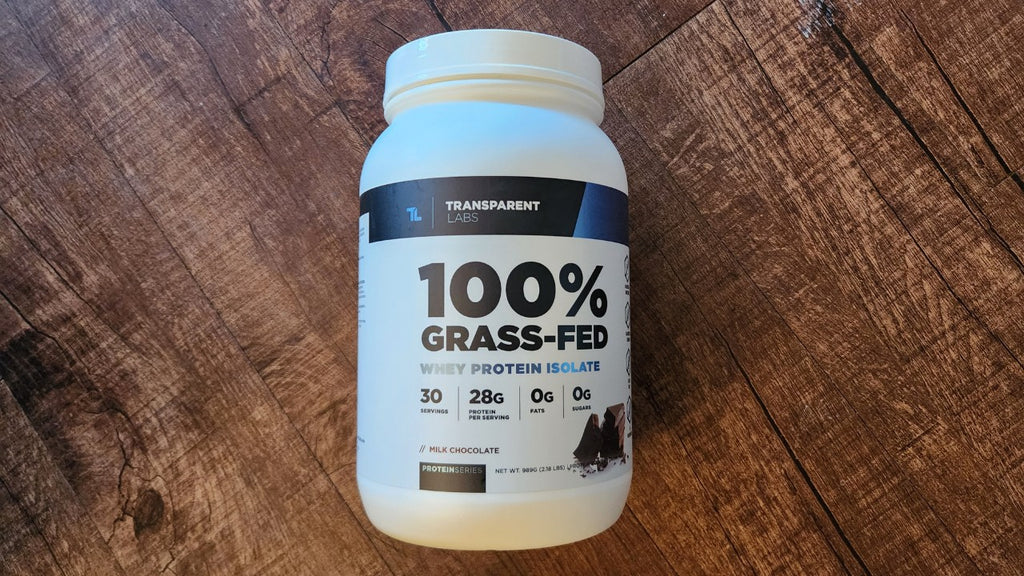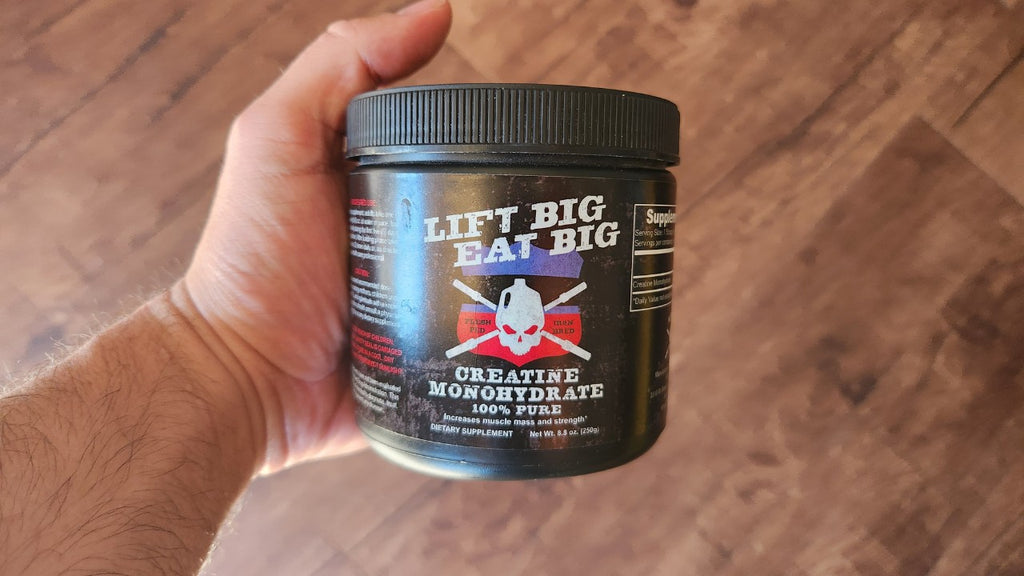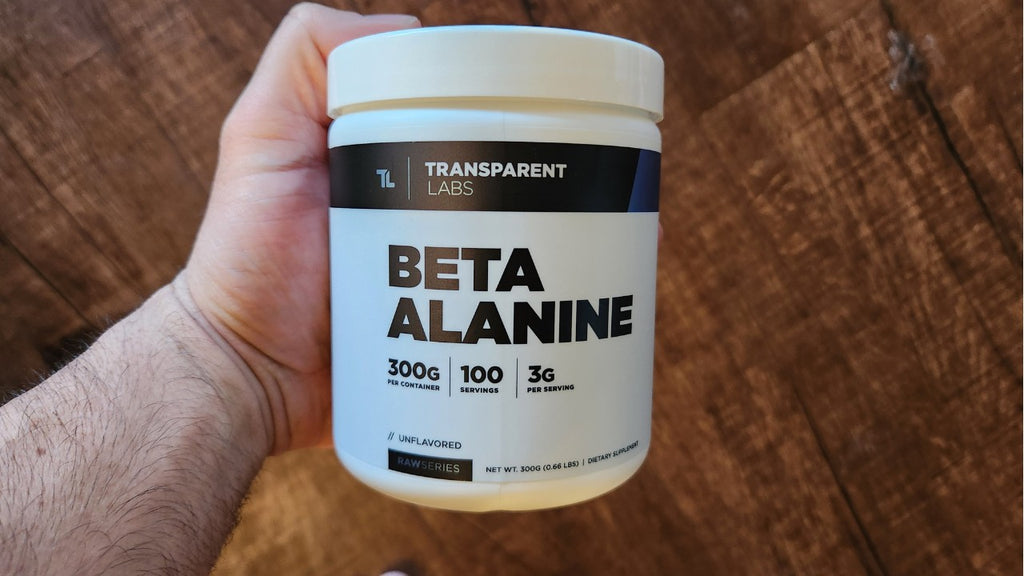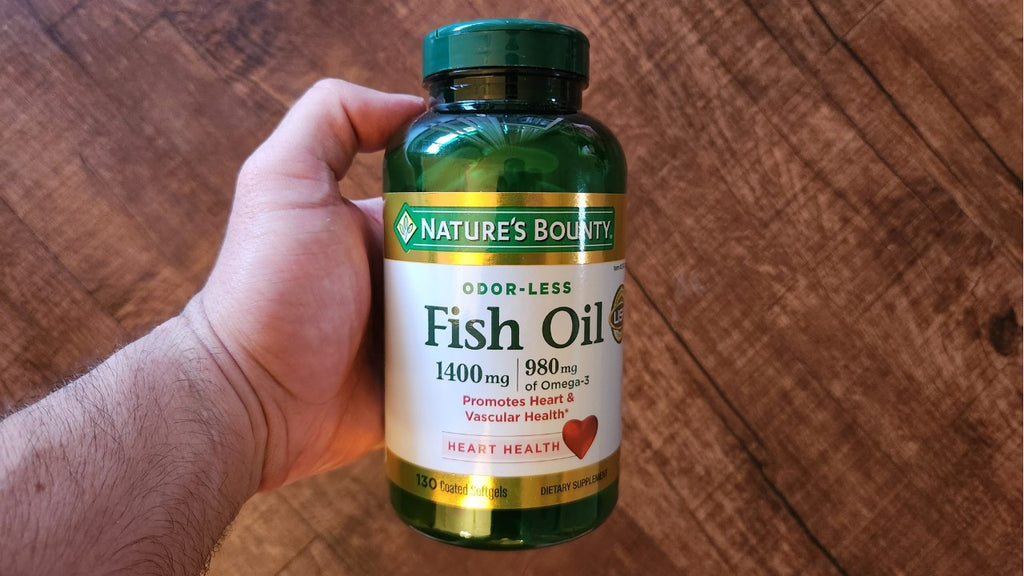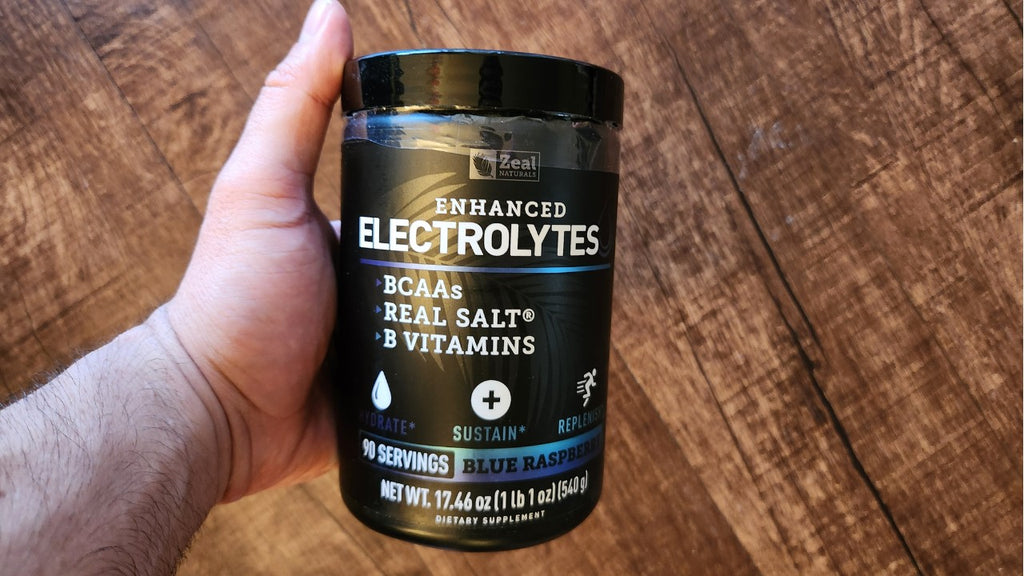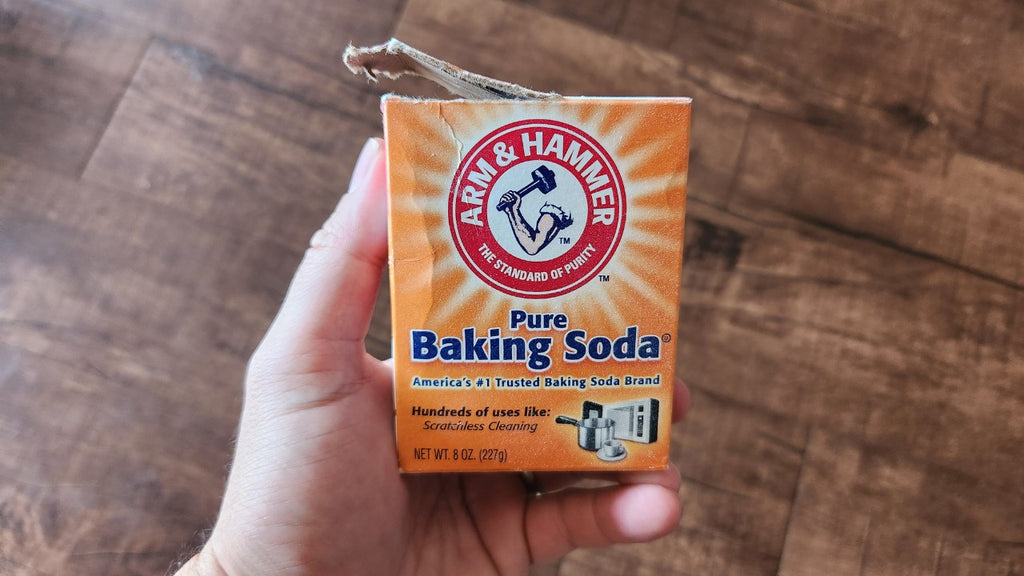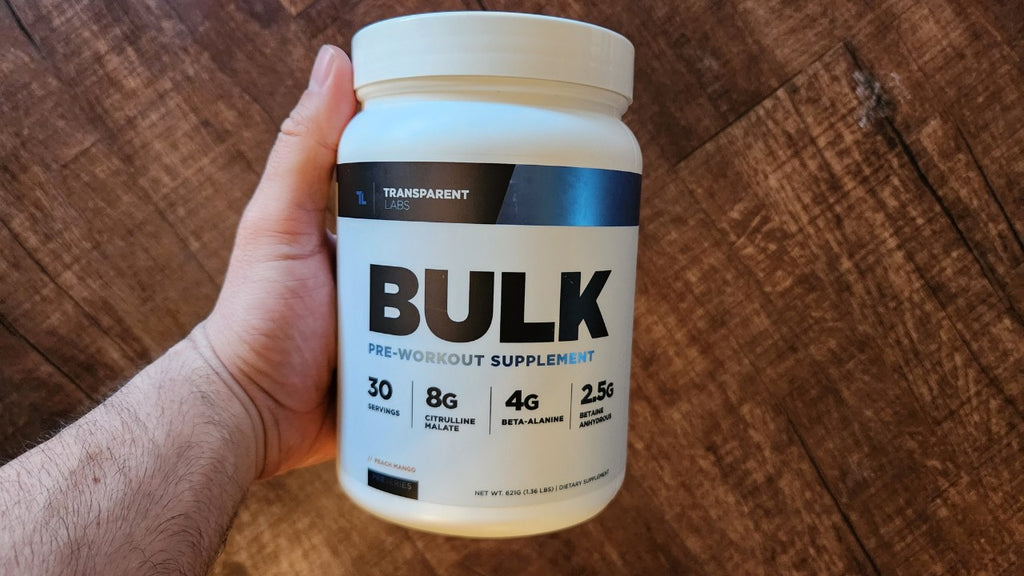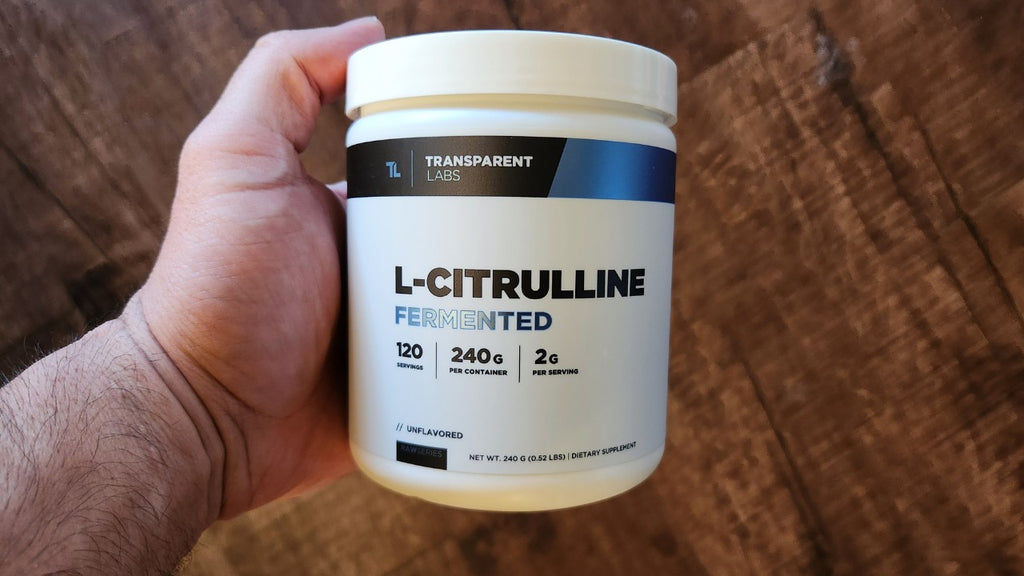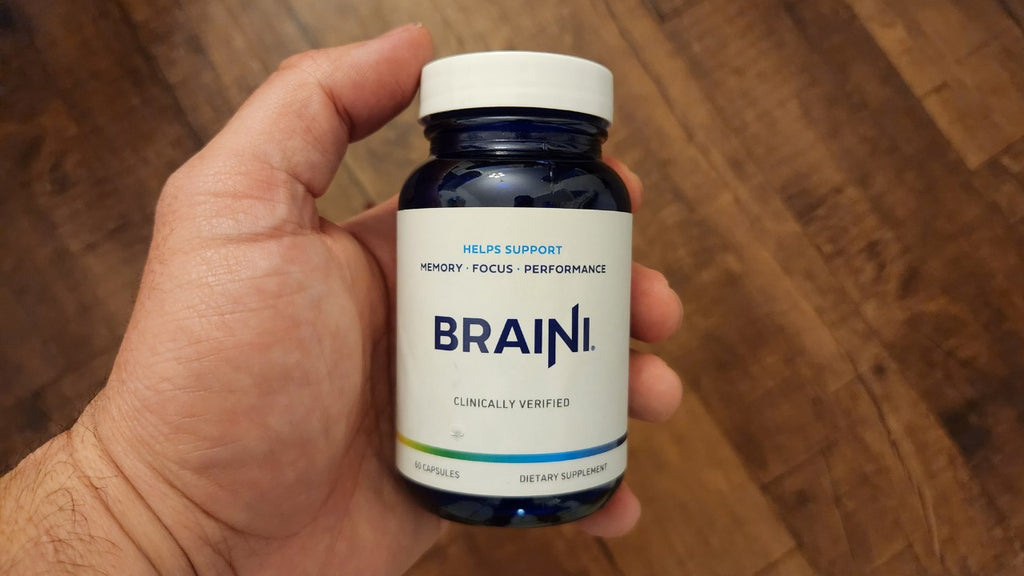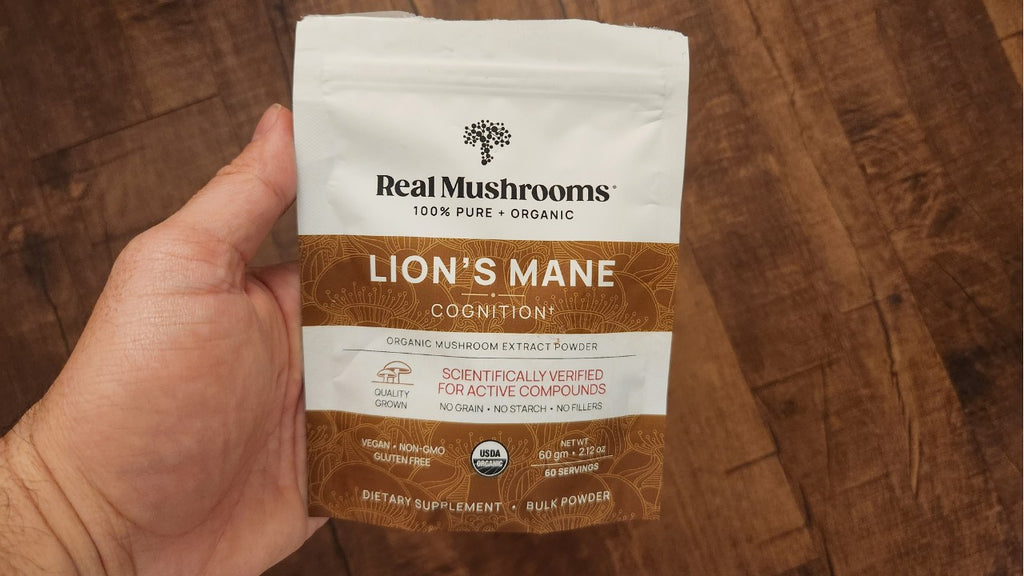
Supplements make your life and training easier. And since boxing is a complex, demanding, and grueling sport, every bit of help can go a long way. But choosing the right supplements is not easy, as there are dozens, if not hundreds, of possibilities on the market, all vying for your hard-earned cash.
Do not fall prey to outdated opinions or marketing promises without a spec of proof. This list contains only proven supplements that can help you in one way or another in your boxing training.
You don't have to take all of them, or in fact, any of them, as supplements are only the icing on the cake consisting of training, nutrition, and sleep. But each has distinct and scientifically proven benefits, so I can recommend each one without concerns.
Best Supplements You Should Take For Boxing
Whey Protein
Whey protein is the most bioavailable and complete protein available in powder form. This means your body can digest, absorb, and use this type of protein to produce new proteins better than any other source.
However, if you meet your daily protein goal of 0.8-1 g per pound of body weight, the protein source matters less.
Beef protein, for example, can help you grow lean body mass like whey protein does, but it also lasts longer in the bloodstream [1].
Whey isolates are of higher quality than whey concentrates since they contain more protein per serving and have little to no lactose, making them ideal for lactose-sensitive people.
Whey protein is shown in studies to increase protein muscle synthesis and aid the increase of muscle mass.
But the primary purpose of protein in powder form remains to help you hit your daily protein goal. If you do that with food, whey is not really necessary.
But for a 180 lbs. person such as myself, reaching the 1 gr per pound of bodyweight daily goal can be challenging, especially if you don't want to go overboard on calories.
How To Take Protein
The timing of whey protein intake is less relevant than the overall daily dose. However, some studies suggest taking 20-40 g of whey after resistance training improves muscle protein synthesis [2].
One scoop of whey ideally contains around 25 gr of protein, but many brands only have 20 gr per dose.
Always look to buy whey with a higher protein quantity per dose. Price is usually indicative of the quality of the product.
If you are competing, buying something with the informed sports tick is recommended to ensure there aren't any contaminants inside.
===>Check Latest Whey Protein Deals<===
Creatine Monohydrate
Creatine monohydrate is the single most studied supplement in history, and all misconceptions, myths, and imaginary issues should have been long gone. Sadly, some persist. But let's first see how creatine works and what it can do for you as a boxer.
Here is how creatine works.
The primary fuel used by the muscle for contraction is called ATP.
The P, in this case, stands for phosphate. The T stands for "tri," which means three. So, there are three phosphates. This is important info, so stay with me.
As you are undoubtedly aware, there are three major energy systems. Aerobic, anaerobic lactic, and anaerobic alactic.
While all energy systems collaborate during exertion (i.e., you cannot isolate one), different energy systems contribute more energy based on the activity being performed.
For example, a boxer primarily uses the aerobic energy system, while the alactic energy system takes center stage during quick, explosive bursts such as punch combinations.
The alactic energy system supplies energy at the fastest rate during peak activity. Other energy systems also contribute, but they are unable to provide energy at the same rate.
The alactic energy system's power is defined as how quickly it can produce ATP (energy), and capacity is how long it can sustain this energy production or regeneration level.
So, how does creatine fit in here?
Remember the phosphate molecule I mentioned before? The creatine molecule is what binds to the phosphate.
The more creatine there is, the more phosphate is present.
When ATP is used, the phosphate is burnt, converting ATP to ADP (D stands for "di" or 2). Now, only two phosphates are attached (it goes further, but we'll stop here).
Additional phosphates must be added to recover energy to convert ADP back into ATP.
The greater the rate this occurs, the longer the energy system can sustain its energy regeneration or capacity.
So, by supplementing with creatine, you can improve the strength and capacity of the alactic energy system, giving you more "explosive" energy throughout your boxing workout or match.
This implies you can do higher-paced training for longer and achieve greater results.
While increasing power output is perhaps the main benefit for a boxer, creatine does much more, which is why it's also a mandatory supplement for strength athletes and casual lifters.
Creatine users may have an average 8% boost in strength and lean muscle mass [3].
Additionally, creatine may have a neuroprotective mechanism that protects from neurodegenerative disease [4]. A critical possible defensive mechanism rarely discussed in combat sports.
Creatine may become a supplement prescribed to all boxers when more research is conducted due to the head trauma dangers inherent to boxing.
Furthermore, creatine may improve memory if you are lacking, as is frequent among vegetarians [5] and even young people [6].
How To Take Creatine
Previous research has demonstrated that a loading phase of 20 g administered in 5 g dosages four times per day for one week, followed by a maintenance dose of 5 g, enhanced creatine absorption into the muscles.
However, the loading phase is unnecessary if you are not after immediate results, and taking 3 to 5 g per day is just as effective at saturating creatine within the muscle in about 6 weeks.
There are many types of creatine on the market, but none has the level of research and proof of efficacy as creatine monohydrate. So, stick with this type and buy from a reputable brand, such as Lift Big Eat Big or Bulk supplements.
===>Check Latest Creatine Deals<===
Vitamin D
Vitamin D is a supplement for boxers and all combat athletes many people sleep on. I even put it in my top 3 must-use supplements next to creatine and whey protein.
Vitamin D plays a vital role in the body, which many are familiar with, but not all know about the significant athletic benefits it can provide. Vitamin D status can be affected by ethnicity, dietary variables, sunshine exposure, and clothing/lifestyle.
Furthermore, most people, such as athletes who train indoors, like boxers, are almost always deficient unless they live in a warm climate and spend much time under the sun.
For example, elite Spanish boxers and other indoor athletes were found to be moderately or severely low in Vitamin D [7].
Vitamin D levels have been linked to bone mineral density, muscular growth, particularly Type II muscle fibers, increased strength and performance, potential for faster recovery, and immune system strengthening [8].
Vitamin D supplementation is an excellent option if you live in a sunless environment or spend little time outside.
How To Take Vitamin D
If you browse vitamin D3 supplements, you will see a massive divergence between the doses measured in UI from 500 to 50,000.
Studies done specifically on combat athletes have shown 50,000 IUs of vitamin D per week improved aerobic and anaerobic exercise performance compared to placebo, so this is what you should aim to take [9][10].
You can go to a local lab and check your vitamin D3 levels. Here is what the numbers show:
12-30 nmol/L= deficient
30-50 nmol/L= inadequate
50-120 nmol/L= adequate
>120 nmol/L= optimal.
===>Check Latest Vitamin D Deals<===
Beta-Alanine
Beta-alanine is a non-essential amino acid that increases carnosine levels, which assists in neutralizing the acid byproducts of strenuous workouts, boosting performance in activities lasting 1 to 4 minutes [11][12].
Beta-alanine is a typical pre-workout substance responsible for a tingling feeling known as paresthesia [13]. This effect is safe, but you do not develop resistance to it.
To reduce the tingles, spread your dose over the day rather than taking a large amount at once.
Recent reviews of beta-alanine in martial arts show benefits in strength, power, overall work capacity, recovery perception, muscle gain, and loss of fat [14].
A study done on amateur boxers who consume 5-6 grams per day demonstrated an increase in punch frequency and force, less fatigue, and better peak power in their lower body, exceeding those who take a placebo [15][16][17].
How To Take Beta Alanine
Based on these studies, I advocate taking beta-alanine daily to improve boxing performance.
Aiming for 179 grams over three to ten weeks can improve endurance [18]. A solid strategy to achieve this is taking 4-6 grams daily, divided into 2-4 dosages.
===>Check Latest Beta Alanine Deals<===
Fish Oil
Unless you consume oily fish like salmon and trout frequently, you could probably benefit from supplementing with fish oil.
For example, ingesting 4.2 grams of EPA and DHA has been proven to improve vertical jump performance and lessen muscle pain for up to two days following exercise [19].
Furthermore, consuming 3.2 grams of EPA and DHA can drop heart rate during both intensive and moderate activity and reduce the body's overall oxygen need without compromising performance [20].
Another significant benefit for boxing is the recent indication that Omega 3 DHA supplementation can reduce concussions symptoms following traumatic brain injury.
When selecting a fish oil supplement, look for one with a high EPA/DHA content relative to capsule size.
A 1-gram capsule typically contains 180 mg of EPA and 120 mg of DHA, meaning only 30% of the capsule is fish oil.
A much better choice is Sports Research Fish Oil, which is a potent fish oil supplement.
===>Check Latest Fish Oil Deals<===
Electrolytes
Boxing sessions can be exhausting and cause excessive sweating. But despite popular advertising claims, the ordinary individual who trains three times per week does not require electrolyte supplements.
However, for competitive boxers training twice a day, replenishing electrolytes is critical for recovery and performance.
Sports drinks are an easy choice, but many don't contain enough sodium, the key electrolyte lost through sweat. Given that our sweat is mostly sodium, these drinks' emphasis on potassium over sodium is misleading.
Choose an electrolyte supplement with a high salt content. The exact requirement varies since people lose sodium at different rates, and certain boxers may lose more sodium than others.
A decent rule of thumb is to search for supplements with 300–1000 mg of salt per serving.
Sports Research provides an electrolyte solution with 400 mg of sodium that tastes great and is sugar free.
How To Take Electrolytes
Electrolytes can be taken before, during, and after training to help replenish the reserves and hydrate the body. During the summer months, I like to take electrolytes and usually do it during training, finishing one serving throughout the session.
===>Check Latest Electrolyte Deals<===
Other Supplements For Boxing To Consider
Sodium Bicarbonate
Sodium bicarbonate, known as baking soda, is usually associated with baking, not improving your boxing performance.
Well, sodium bicarb has been explicitly studied in boxers, and the results are surprisingly good.
Ten amateur boxers at the national and international levels took 0.3g of sodium bicarbonate per kg of body weight an hour before sparring [23].
In contrast to the placebo, the boxers gradually raised their work rate throughout four rounds.
This was due to increased blood buffering capacity, which allowed the boxers to postpone the onset of fatigue by removing waste products from the energy regeneration process.
Furthermore, 7 professional boxers drank the same amount of sodium bicarbonate 10 minutes after a high-intensity running routine that mimicked the demands of a 3x4 round boxing battle, including a fourth round of running to exhaustion [24].
75 minutes later, boxers were put through a boxing-specific pad work routine that included 3x3 3-minute rounds followed by a high-intensity run.
The sodium bicarbonate condition extended the time to exhaustion more than double that of the placebo.
Sodium bicarbonate could be considered one of the best pre-workout supplements, and you likely have it at home right now.
How To Take Sodium Bicarbonate
Taking 0.3g per kg of bodyweight baking soda within 1-2 hours before boxing is enough to improve your performance.
For example, as a welterweight weighing 152 pounds, divide your body weight by 2.2 to calculate kilograms. At 69 kilograms, you would need to take 20 grams of sodium bicarbonate.
Make sure to combine it with something tasty because pure soda is not easy to drink. About 4ml of water per kg (about 280ml for our 69 kg example), with 1ml of sugar-free flavoring per kg of body weight.
If you want to start taking sodium bicarbonate to improve your boxing performance, first try it before a training session rather than a competition.
Depending on the amount consumed, it may cause stomach discomfort. You should be fine at these levels of 0.3g per kg of body weight, but it's always a good idea to observe how you react.
===>Check Latest Sodium Bicarbonate Deals<===
Caffeine + L-Theanine
Caffeine is the most popular energy substance found in coffee, tea, and other natural and artificial beverages. It's also one of the most commonly used performance enhancers in sports, including boxing.
It provides energy, reduces fatigue, improves pain perception, and positively affects the central nervous system. But it also has adverse effects, which I am sure you are familiar with.
Drinking one coffee too much can make you anxious and jittery and leave you lying awake in bed for hours. This is where the amino acid L-theanine comes in.
L-theanine on its own reduces stress and anxiety and helps you relax. However, once combined with caffeine, it not only takes away the negative effects of caffeine but also further aids cognition and attention [25].
How To Take Caffeine & L-Theanine
Most studies show the best caffeine dosage for performance increases is 3-6mg/kg, which is a substantial amount of caffeine.
I am around 84 kg, so based on the recommendations, I need around 250-300 mg of caffeine or around 4 cups of coffee for optimal results.
The good news is L-theanine reduces the amount of caffeine required to get the same effect. The common ratio is 2:1 of L-Theanine to caffeine. For a reasonable 100 mg of caffeine, take 200 mg of L-theanine.
While this is the suggested dose, I've played around with different ratios, and all seem to work fine, so don't worry too much about it.
Take the stack around 30 minutes before training.
Keep in mind when you are taking caffeine. No matter what supplements you take, sleep remains the most important factor for recovery, and caffeine has an elimination half-life of around 6 hours and can stay in the body for up to 9 hours after intake [26].
===>Check Latest Caffeine + L-Theanine Deals<===
L-Citrulline
L-citrulline has become a popular endurance supplement, possibly functioning as a vasodilator to increase blood flow. It increases nitric oxide synthesis by converting to l-arginine in the kidneys, subsequently creating nitric oxide.
While research into this process has shown conflicting results, there is evidence it improves endurance performance [27][28].
Nowadays, most pre-workout products contain L-citrulline. Taking it continuously for more than a week appears to amplify its performance-boosting effects, however a single dose of 6-8 grams can provide instant advantages.
How To Take L-Citrulline
A 3-12 grams dose is enough for regular use, but the optimal daily intake is 6-8 grams.
===>Check Latest L-Citrulline Deals<===
Nootropic Supplements For Boxing
Nootropics are brain enhancers that are somewhat experimental and are not something every boxer should take. I personally like to try them, and some deliver surprisingly good results in and out of the gym.
I have two recommendations you may consider.
Braini
Braini is a one-of-a-kind brain booster with a patented recipe that has been peer-reviewed. They assessed its effectiveness by administering it to people for 28 days.
The participants took Braini every day and did a specific brain test at the beginning and end of the period to determine how their cognitive abilities changed.
The results show a 7.8% increase in cognitive flexibility and executive function at the Executive Function Shifting Attention Test (SAT-RT) compared to a placebo [21].
Cognitive flexibility is the ability to change your thoughts quickly, which aids in making accurate choices, particularly in sports such as boxing.
Executive function aids in concentration, following procedures, transitioning between tasks requiring memory, and being creative, all essential in boxing training.
The SAT-RT is a thinking and speed test measuring how quickly and effectively you can transfer your focus.
Braini has become popular among NFL players, so I can imagine it becoming more mainstream in other sports as well.
===>Check Latest Braini Deals<===
Lions Mane Mushroom
Mushroom extracts have become quite popular as health and wellness supplements.
Most mushroom extracts are speculative at best. Although there is little strong proof to back up the benefits, it may be worthwhile to take the risk.
Lion's Mane, in particular, is recognized for its cognitive advantages. A recent study discovered Lions Mane may boost mental processing speed and reduce stress in healthy persons [22].
Importantly, you must seek out high-quality Lion's Mane, like the ones offered by Real Mushrooms. Take 2-3 g daily to notice potential effects.
===>Check Latest Lions Mane Deals<===
Supplements For Boxing To Avoid
I want to direct your attention to a couple of supplements many people take that do not provide unique benefits. They are not harmful, but spending money on them is pointless.
BCAAs
As I explained in the whey protein section, the most essential factor is a total protein intake of 0.8 to 1 gr per pound of body weight, followed by protein source and bioavailability. If you consume enough protein, you get enough BCAA's from your food.
Furthermore, if you drink whey, it also has BCAAs inside, and supplementing with these three amino acids separately is nothing more than a waste of money [29].
L-Glutamine
Glutamine is another supplement with no effect on performance and recovery [30].
Frequently Asked Boxing Supplement Questions
What Supplements Should a Boxer Take?
There are no mandatory supplements a boxer should take. However, some are known to provide multiple benefits to performance directly or indirectly. The top 3 supplements for boxers are creatine, vitamin D3, and whey protein.
Should Boxers Take Creatine?
Yes, boxers should take creatine. The supplement has undoubtedly been proven to increase strength, explosive power, lean muscle mass, and endurance. It may also aid recovery between workouts and is a supplement I recommend to boxers at all levels because it’s nearly impossible to get enough from food alone.
Are Supplements Allowed in Boxing?
Food supplements are allowed in all sports, including boxing. However, some brands and products may contain contaminants, which can lead to failed banned substance tests if you compete. It's imperative only to take proven, clean products if you are subject to testing.
Summary
All of the supplements on this list directly affect your performance. Some, like whey, are more of a dietary companion; vitamin D is an overall health supplement with performance implications, while Beta-Alanine and creatine directly boost specific athletic qualities.
If you are handling boxing training, conditioning, food, and sleep properly, supplements can be a great way to improve your physical and mental condition in the gym and daily life.
References
- Naclerio, F., Seijo, M., Larumbe-Zabala, E., & Earnest, C. P. (2017). Carbohydrates alone or mixing with beef or whey protein promote similar training outcomes in resistance training males: a double-blind, randomized controlled clinical trial. International journal of sport nutrition and exercise metabolism, 27(5), 408-420.
- Macnaughton LS, Wardle SL, Witard OC, McGlory C, Hamilton DL, Jeromson S, Lawrence CE, Wallis GA, Tipton KD. The response of muscle protein synthesis following whole-body resistance exercise is greater following 40 g than 20 g of ingested whey protein. Physiol Rep. 2016 Aug;4(15):e12893. doi: 10.14814/phy2.12893. PMID: 27511985; PMCID: PMC4985555.
- Rawson, E. S., & Volek, J. S. (2003). Effects of creatine supplementation and resistance training on muscle strength and weightlifting performance. The Journal of Strength & Conditioning Research, 17(4), 822-831.
- Beal, M. F. (2011). Neuroprotective effects of creatine. Amino acids, 40(5), 1305-1313.
- Benton, D., & Donohoe, R. (2011). The influence of creatine supplementation on the cognitive functioning of vegetarians and omnivores. British journal of nutrition, 105(7), 1100-1105.
- Rae, C., Digney, A. L., McEwan, S. R., & Bates, T. C. (2003). Oral creatine monohydrate supplementation improves brain performance: a double–blind, placebo–controlled, cross–over trial. Proceedings of the Royal Society of London. Series B: Biological Sciences, 270(1529), 2147-2150.
- Valtueña, J., Dominguez, D., Til, L., González-Gross, M., & Drobnic, F. (2014). High prevalence of vitamin D insufficiency among elite Spanish athletes; the importance of outdoor training adaptation. Nutricion hospitalaria, 30(1), 124-131.
- de la Puente Yagüe, M., Collado Yurrita, L., & Cuadrado Cenzual, M. A. (2020). Role of vitamin d in athletes and their performance: Current concepts and new trends. Nutrients, 12(2), 579.
- Marley, A., Grant, M. C., & Babraj, J. (2021). Weekly Vitamin D3 supplementation improves aerobic performance in combat sport athletes. European Journal of Sport Science, 21(3), 379-387.
- Marley, A., Grant, M. C., & Babraj, J. (2022). Vitamin D3 supplementation combined with sprint interval training improves aerobic and anaerobic exercise performance over sprint interval training alone in recreational combat sport athletes. Science & Sports, 37(3), 217-e1.
- Huerta Ojeda, A., Tapia Cerda, C., Poblete Salvatierra, M. F., Barahona-Fuentes, G., & Jorquera Aguilera, C. (2020). Effects of beta-alanine supplementation on physical performance in aerobic–anaerobic transition zones: A systematic review and meta-analysis. Nutrients, 12(9), 2490.
- Hobson, R. M., Saunders, B., Ball, G., Harris, R. C., & Sale, C. (2012). Effects of β-alanine supplementation on exercise performance: a meta-analysis. Amino acids, 43(1), 25-37.
- Saunders, B., Elliott-Sale, K., Artioli, G. G., Swinton, P. A., Dolan, E., Roschel, H., ... & Gualano, B. (2017). β-alanine supplementation to improve exercise capacity and performance: a systematic review and meta-analysis. British Journal of Sports Medicine, 51(8), 658-669.
- Fernández-Lázaro, D., Fiandor, E. M., García, J. F., Busto, N., Santamaría-Peláez, M., Gutiérrez-Abejón, E., ... & Mielgo-Ayuso, J. (2023). β-Alanine Supplementation in Combat Sports: Evaluation of Sports Performance, Perception, and Anthropometric Parameters and Biochemical Markers—A Systematic Review of Clinical Trials. Nutrients, 15(17), 3755.
- Donovan, T., Ballam, T., Morton, J. P., & Close, G. L. (2012). β-alanine improves punch force and frequency in amateur boxers during a simulated contest. International journal of sport nutrition and exercise metabolism, 22(5), 331-337.
- Alabsi, K., Rashidlamir, A., & Dokht, E. H. (2023). The effect of 4 Weeks of strength training and beta-alanine supplementation on anaerobic power and carnosine level in boxer players. Journal of Science in Sport and Exercise, 5(1), 62-69.
- Kim, K. J., Song, H. S., Yoon, D. H., Fukuda, D. H., Kim, S. H., & Park, D. H. (2018). The effects of 10 weeks of β-alanine supplementation on peak power, power drop, and lactate response in Korean national team boxers. Journal of exercise rehabilitation, 14(6), 985.
- Hobson, R.M., Saunders, B., Ball, G. et al. Effects of β-alanine supplementation on exercise performance: a meta-analysis. Amino Acids 43, 25–37 (2012). https://doi.org/10.1007/s00726-011-1200-z
- VanDusseldorp, T. A., Escobar, K. A., Johnson, K. E., Stratton, M. T., Moriarty, T., Kerksick, C. M., ... & Mermier, C. M. (2020). Impact of varying dosages of fish oil on recovery and soreness following eccentric exercise. Nutrients, 12(8), 2246.
- Peoples, G. E., McLennan, P. L., Howe, P. R., & Groeller, H. (2008). Fish oil reduces heart rate and oxygen consumption during exercise. Journal of cardiovascular pharmacology, 52(6), 540-547.
- Lanou, A. J., Mast, A. C., Hill, B. D., Kim, S. S., & Hanaway, P. (2023). A Randomized, Placebo-Controlled Clinical Trial of a Novel Dietary Supplement on Standardized CNS Vital Signs Cognitive Performance Parameters in Adults. Journal of Integrative and Complementary Medicine, 29(5), 303-312.
- Docherty, S., Doughty, F. L., & Smith, E. F. (2023). The Acute and Chronic Effects of Lion’s Mane Mushroom Supplementation on Cognitive Function, Stress and Mood in Young Adults: A Double-Blind, Parallel Groups, Pilot Study. Nutrients, 15(22), 4842.
- Siegler, J. C., & Hirscher, K. (2010). Sodium bicarbonate ingestion and boxing performance. The Journal of Strength & Conditioning Research, 24(1), 103-108.
- Gough, L. A., Rimmer, S., Sparks, S. A., McNaughton, L. R., & Higgins, M. F. (2019). Post-exercise supplementation of sodium bicarbonate improves acid base balance recovery and subsequent high-intensity boxing specific performance. Frontiers in nutrition, 6, 155.
- Giesbrecht, T., Rycroft, J. A., Rowson, M. J., & De Bruin, E. A. (2010). The combination of L-theanine and caffeine improves cognitive performance and increases subjective alertness. Nutritional neuroscience, 13(6), 283-290.
- Institute of Medicine (US) Committee on Military Nutrition Research. Caffeine for the Sustainment of Mental Task Performance: Formulations for Military Operations. Washington (DC): National Academies Press (US); 2001. 2, Pharmacology of Caffeine.
- Gonzalez, A. M., & Trexler, E. T. (2020). Effects of citrulline supplementation on exercise performance in humans: A review of the current literature. The Journal of Strength & Conditioning Research, 34(5), 1480-1495.
- Gonzalez, A. M., Yang, Y., Mangine, G. T., Pinzone, A. G., Ghigiarelli, J. J., & Sell, K. M. (2023). Acute Effect of L-Citrulline Supplementation on Resistance Exercise Performance and Muscle Oxygenation in Recreationally Resistance Trained Men and Women. Journal of Functional Morphology and Kinesiology, 8(3), 88.
- Plotkin, D. L., Delcastillo, K., Van Every, D. W., Tipton, K. D., Aragon, A. A., & Schoenfeld, B. J. (2021). Isolated leucine and branched-chain amino acid supplementation for enhancing muscular strength and hypertrophy: A narrative review. International journal of sport nutrition and exercise metabolism, 31(3), 292-301.
- Ahmadi, A. R., Rayyani, E., Bahreini, M., & Mansoori, A. (2019). The effect of glutamine supplementation on athletic performance, body composition, and immune function: A systematic review and a meta-analysis of clinical trials. Clinical nutrition, 38(3), 1076-1091.
Affiliate Disclosure:
The links provided may earn us a small commission at no additional cost to you if you choose to purchase the recommended product. This support allows our research and editorial team to continue providing high-quality recommendations. As a participant in the Amazon Services LLC Associates Program, an affiliate advertising initiative, we are able to earn advertising fees through providing links to products on Amazon.com. Please rest assured that we only recommend high-quality products.
